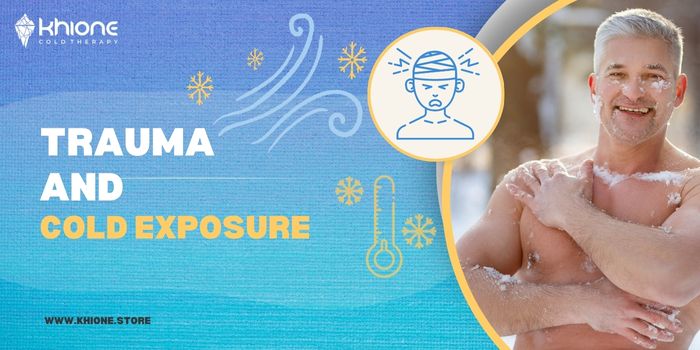Trauma and cold exposure are two experiences that have a profound impact on the mind and body. Trauma, which can result from experiences such as abuse, neglect, or exposure to violence, can have long-lasting effects on mental health and well-being. Cold exposure, on the other hand, has been used for centuries to improve physical and mental resilience and has been shown to have numerous health benefits.
While cold exposure is typically associated with positive outcomes, it can also be a trigger for individuals who have experienced trauma. This is because exposure to cold temperatures can activate the body’s fight-or-flight response, which can
trigger memories of past traumatic experiences. For individuals who have experienced trauma, exposure to cold temperatures can be overwhelming and lead to feelings of anxiety, fear, and even panic.
However, with the right approach, cold exposure can also be a powerful tool in the recovery from trauma. By combining cold exposure with mindfulness and other trauma-informed practices, individuals can learn to regulate their physiological responses and develop greater resilience in the face of traumatic memories.
For example, exposure to cold temperatures can help individuals become more aware of their physical sensations and learn to regulate their breathing, which can be helpful in reducing feelings of anxiety and panic. Additionally, practicing mindfulness and other forms of self-care can help individuals develop a more positive relationship with their bodies and increase their overall resilience.
It’s important to note that not all individuals will be able to safely engage in cold exposure, particularly those who have experienced severe trauma. If you have experienced trauma and are interested in trying cold exposure, it’s important to work with a mental health professional who has experience in trauma-informed practices.
In conclusion, trauma and cold exposure are two experiences that can have a profound impact on the mind and body. While cold exposure can be a trigger for individuals who have experienced trauma, it can also be a valuable tool in the recovery process when combined with mindfulness and other trauma-informed practices. If you’re interested in exploring this combination, it’s important to work with a mental health professional who has experience in trauma-informed practices.





